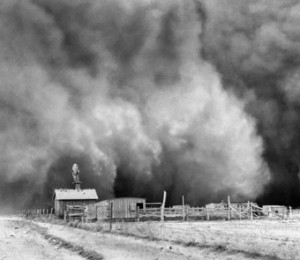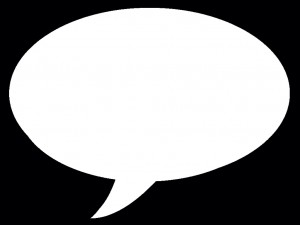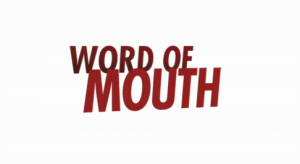 It’s human nature to compare things. We put things in context for better understanding. “This thing [business/weather/process/person/event] that is happening is like this other thing that happened, and that thing turned out [good/bad/different/better/worse].”
It’s human nature to compare things. We put things in context for better understanding. “This thing [business/weather/process/person/event] that is happening is like this other thing that happened, and that thing turned out [good/bad/different/better/worse].”
I’ve been doing a lot of that lately surrounding the media. Specifically, I’ve spent time contemplating how to reconcile how valuable journalism is to society compared to how much actual monetary value it generates. As I’ve written about before, no one knows what’s going to happen to this business: whether it will go the way of the steamship and the telegraph, reinvent itself a la Apple, or something in between.
I’m not the only observer who’s searching for an appropriate comparison from the past in order to predict the media’s future, but I do find that some insights are better than others; does anyone really think that the envelope business, of all things, is really a good model for the Random House-Penguin merger? (Does anyone think of “the envelope business” at all?)
Watching the Ken Burns PBS documentary The Dust Bowl recently, however, opened my eyes to a new analogy for the media of the present day: farming a century ago. (And why not — we did recently learn that there are far more software app engineers than farmers.) According to Burns, farmers in the Great Plains around 100 years ago sold their goods, wheat in particular, in enough volume and at a fair enough price, that they kept their families fed, happy and productive before the Great Depression. Prior to the big event, they faced periodic yet persistent droughts and occasional technological breakthroughs (gas-powered plowing, for example). But year after year, they found a way to keep going, even increasing volume to make up for the deficits caused by off years. That is, until the permanently landscape-altering Dust Bowl.
Compare this to journalists and media today. For decades we plied our trade, not making big money but making enough to support our families. We changed with the times, moving from copy boys and paste-ups to computers. But the past decade has seen such a huge acceleration of technology (and a hugely inverse deceleration of jobs) that our worth is now, to put it mildly, in question. Like the farmers, we’ve tried doing more: You’re now not only a reporter, you’re also a videographer, photographer and blogger — and you will hereafter be known as a “content creator.” You’re now responsible for not only reporting your usual one-story-by-deadline allotment, but you’re also going to write six additional posts a day (and you need to know how to produce them, tag them and upload them).
But as the farmers discovered, doing more not only didn’t help them, it actually created its own set of problems. In their case, they unknowingly caused the largest man-made ecological disaster to date (you’re well on your way, though, global climate change: hang in there). In ours, the huge volume of posts was churned through by disloyal consumers, the glut and pace belittled the value of the news, and the business changed from creating newsworthy, relevant content to attracting eyeballs and lowering bounce rates and counting click-throughs and measuring social engagement and Tweeting viral videos.
Other, larger factors were also at play, including the rapid pace of technological development. The ease of use of technology meant that anyone could be a creator of content — so the process of journalism was democratized, but it was also dumbed down and its worth devalued.
“But of all our losses, the most distressing is our loss of self-respect. How can we feel that our work has any dignity or importance when the world places so low a value on the products of our toil?”
—Caroline Henderson, Oklahoma farmer during the 1932 drought during the Depression, just prior to the Dust Bowl’s worst
Now, I’m not saying it’s a perfect comparison. We haven’t had to put to pasture cattle that suffocated during “black blizzards” or bury children who caught “dust pneumonia.” But I think it’s a decent metaphor, because the media is going through its version of the Dust Bowl. Newspapers and magazines are closing up shop at an unprecedented pace; media businesses are losing money quarter after quarter and year after year, with no end in sight; those workers who are able (and I count myself among this number) are learning new skills and moving into new areas. (All of this can be said for other industries as well, by the way, particularly music.)
Somewhat brazenly, and I think disrespectfully, we’ve taken to calling tech and business shakeups, events and new models “disruptions.” Of course, since the beginning of time businesses have striven to disrupt other, existing businesses, but it seems much more ruthless to start your business with the sole intent of creating wreckage. I think it’s fair to cast our historical eye onto the Depression and the Dust Bowl and deem them disruptions, at the very least. And it’s easy to forget, but disruptions have a cost — a monetary one and a human one.
Years from now, I wondered while watching the documentary, how will journalism be perceived? Who will be the talking heads and what will they say? Which commentators will highlight which historical implications that, in retrospect, seem clear? How will the people generations from now — even one or two — talk about the media? Will we have adapted with the times and made a new reality for ourselves (and somehow have figured out a way to feed our families along the way)? Is journalism like the family farm in the Oklahoma panhandle of the 1930s, and are we farmers, continuing to plow the fields that we’ve yet to learn will never again yield crops? Is it like kerosene lighting, steam-powered train engines, millinery, fax machines, answering services, 8-tracks, the luncheonette, and the endless list of other businesses throughout history that litter the shoulders of the road toward the future? I want to believe that it’s not. I hope upon hope that it’s not.
“Hope kept them going, but hope also meant that they were being constantly disappointed.”
—Pamela Riney-Kehrberg, Dust Bowl historian
 Nobody knows anything.
Nobody knows anything. Well, my debut of sorts. I’ve recently had the pleasure of being “cast” as part of the
Well, my debut of sorts. I’ve recently had the pleasure of being “cast” as part of the 
